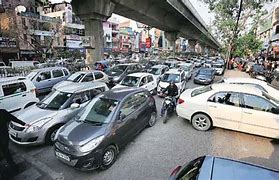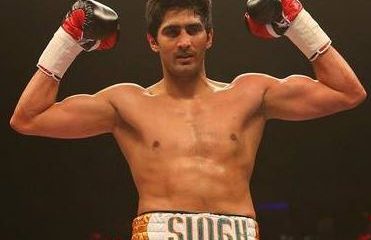Feature
HC says no to restraining odd/even vehicle formula

New Delhi: The Delhi High Court on Wednesday refused to restrain the city government from enforcing it’s decision to allow even and odd number cars to ply in Delhi on alternative dates, saying the decision is on a “trial basis”.
A division bench of Chief Justice G. Rohini and Justice Jayant Nath refused to pass any order on two PILs against Delhi government’s a decision and posted the matters for December 23.
“It’s premature. Why are you filing these petitions? Delhi government is discussing this with groups of people. They will implement it from January 1, 2016 on trial basis. There is no policy/notification now. There is a proposal. You can’t use these PILs just to pressurise the government,” said the bench while adjourning the case.
Appearing for the Delhi government, advocate Rahul Mehra opposed the pleas, saying the government has been discussing the issue with groups of people and the pleas should be dismissed.
One PIL was filed by advocate Shweta Kapoor and the other by Sarvesh Singh.
One of the PILs said the government announced its plan to restrict the number of cars on roads without first conducting a public debate and a study of the pros and cons of a system based on whether the registration number of a motor vehicle ends in an even or odd digit.
It said the decision taken without considering the disturbing effect it would have on the public at large.
To bring down the increasing air pollution level in the national capital, the Delhi government has decided that from January 1, private vehicles would be allowed to run on the streets on alternate dates depending on whether their licence plates end in odd or even numbers.
The plea said the government had not taken into consideration that there was a principle of ‘public will’ under the democratic system of governance and the same could be taken away by issuing such directions and restrictions.
It also raised the question of women’s safety, saying the government had not been able to provide a safe public transport to women and that the decision was “unreasonable and arbitrary”.
“The women who have always felt unsafe in this city feel safe driving their own vehicles back from their workplace after sundown or even late at night or engaging their own drivers where they have the paying capacity but now they will have to face the horrors on a lternate days,” said the plea.
It said the government had also ignored the differently-abled who used modified private vehicles and under no circumstance they would be able to commute by public transp ort. The plea also said that curtailing the movement of citizens on the basis of registration number of their vehicles would also leave several citizens stranded on every alternate day.
“Curtailing the constitutional rights of the citizens by following unreasonable and arbitrary measures is only going to add to the chaos and shall not actually uproot the actual causes of pollution from the city which include pollution dust, entry of trucks inside the city of Delhi and traditional ways of waste disposal in the city,” it added.
Entertainment
Meghalaya Reserves Legalized Gambling and Sports Betting for Tourists

The State Scores Extra High on Gaming-Friendly Industry Index
Meghalaya scored 92.85 out of 100 possible points in a Gaming Industry Index and proved to be India’s most gaming-friendly state following its recent profound legislation changes over the field allowing land-based and online gaming, including games of chance, under a licensing regime.
The index by the UK India Business Council (UKIBC) uses a scale of 0 to 100 to measure the level of legalisation on gambling and betting achieved by a state based on the scores over a set of seven different games – lottery, horse racing, betting on sports, poker, rummy, casino and fantasy sports
Starting from February last year, Meghalaya became the third state in India’s northeast to legalise gambling and betting after Sikkim and Nagaland. After consultations with the UKIBC, the state proceeded with the adoption of the Meghalaya Regulation of Gaming Act, 2021 and the nullification of the Meghalaya Prevention of Gambling Act, 1970. Subsequently in December, the Meghalaya Regulation of Gaming Rules, 2021 were notified and came into force.
All for the Tourists
The move to legalise and license various forms of offline and online betting and gambling in Meghalaya is aimed at boosting tourism and creating jobs, and altogether raising taxation revenues for the northeastern state. At the same time, the opportunities to bet and gamble legally will be reserved only for tourists and visitors.
“We came out with a Gaming Act and subsequently framed the Regulation of Gaming Rules, 2021. The government will accordingly issue licenses to operate games of skill and chance, both online and offline,” said James P. K. Sangma, Meghalaya State Law and Taxation Minister speaking in the capital city of Shillong. “But the legalized gambling and gaming will only be for tourists and not residents of Meghalaya,” he continued.
To be allowed to play, tourists and people visiting the state for work or business purposes will have to prove their non-resident status by presenting appropriate documents, in a process similar to a bank KYC (Know Your Customer) procedure.
Meghalaya Reaches Out to a Vast Market
With 140 millions of people in India estimated to bet regularly on sports, and a total of 370 million desi bettors around prominent sporting events, as per data from one of the latest reports by Esse N Videri, Meghalaya is set to reach out and take a piece of a vast market.
Estimates on the financial value of India’s sports betting market, combined across all types of offline channels and online sports and cricket predictions and betting platforms, speak about amounts between $130 and $150 billion (roughly between ₹9.7 and ₹11.5 lakh crore).
Andhra Pradesh, Telangana and Delhi are shown to deliver the highest number of bettors and Meghalaya can count on substantial tourists flow from their betting circles. The sports betting communities of Karnataka, Maharashtra, Uttar Pradesh and Haryana are also not to be underestimated.
Among the sports, cricket is most popular, registering 68 percent of the total bet count analyzed by Esse N Videri. Football takes second position with 11 percent of the bets, followed by betting on FIFA at 7 percent and on eCricket at 5 percent. The last position in the Top 5 of popular sports for betting in India is taken by tennis with 3 percent of the bet count.
Local Citizens will Still have Their Teer Betting
Meghalaya residents will still be permitted to participate in teer betting over arrow-shooting results. Teer is a traditional method of gambling, somewhat similar to a lottery draw, and held under the rules of the Meghalaya Regulation of the Game of Arrow Shooting and the Sale of Teer Tickets Act, 2018.
Teer includes bettors wagering on the number of arrows that reach the target which is placed about 50 meters away from a team of 20 archers positioned in a semicircle.
The archers shoot volleys of arrows at the target for ten minutes, and players place their bets choosing a number between 0 and 99 trying to guess the last two digits of the number of arrows that successfully pierce the target.
If, for example, the number of hits is 256, anyone who has bet on 56 wins an amount eight times bigger than their wager.





















